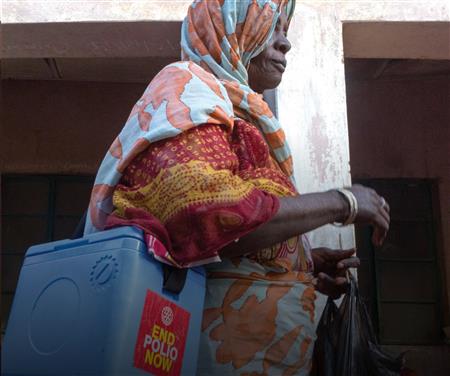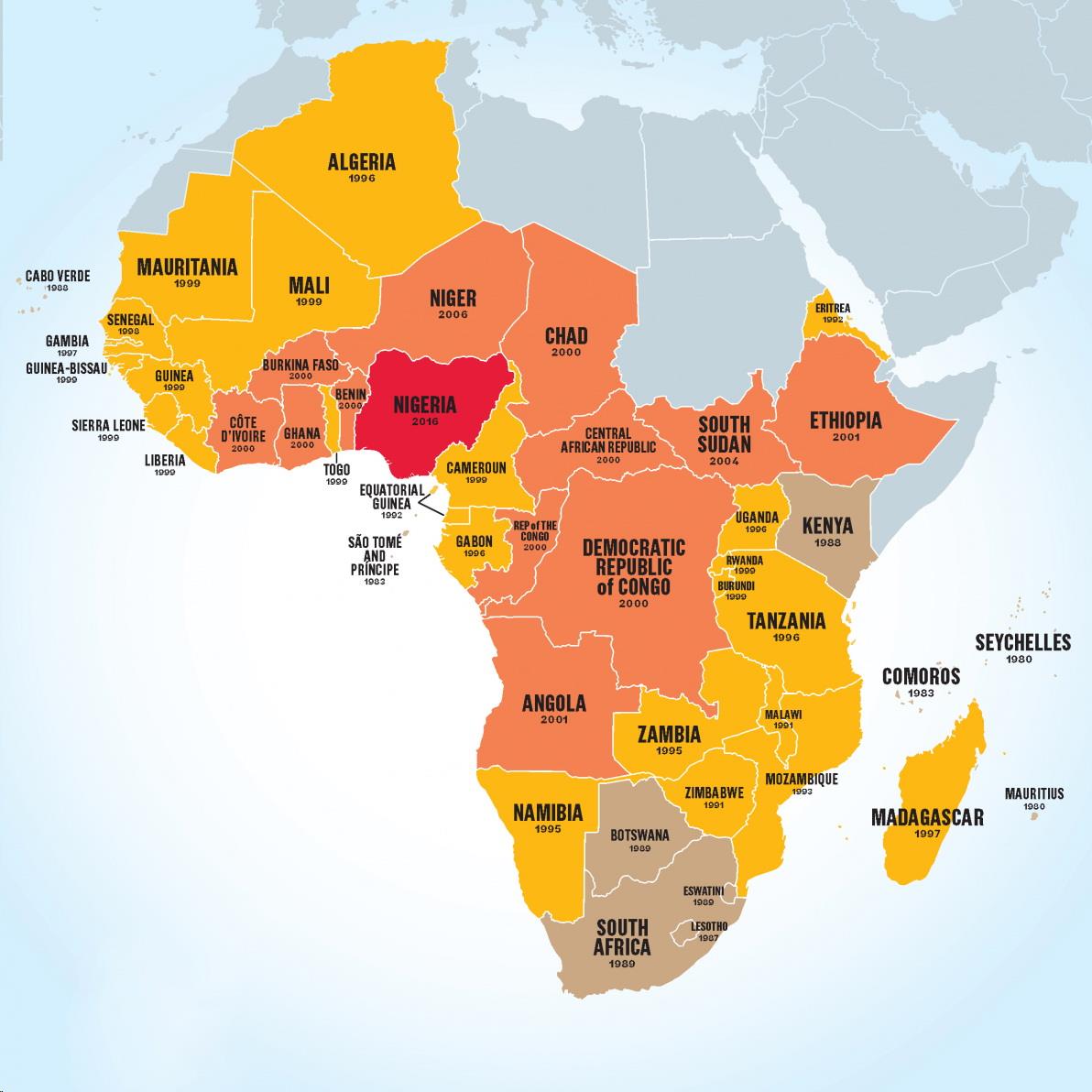
Please click here for link to the full story.
It was May 1997, and Sam Okudzeto, then a member of the African Regional PolioPlus Committee from Ghana, was flying to Sierra Leone for what he anticipated would be a routine annual meeting about polio eradication in Africa. But when his plane touched down and he looked out the window, he saw that soldiers, guns drawn, had flooded the tarmac.
As Okudzeto made his way to passport control, he asked an airport official what was going on. “Listen carefully,” he was told. “You can hear the guns.” There had been a coup that morning.
“All we heard was boom, boom, boom,” Okudzeto recalls. “Then I realized that the aircraft that had brought us had gone.”
With no taxis running, Okudzeto and the other meeting participants who had been on the plane walked to a nearby hotel. “We all went to our rooms and put our luggage down and then went to the restaurant,” he recalls. “I asked for the biggest and juiciest sole fish I had ever had in my life, because it might be my last supper.” (Luckily it wasn’t, and four days later, Okudzeto and the others caught a helicopter out of the country.)
“There is an enemy in life — and it’s fear,” he says now. “For those who are not afraid, it’s amazing what you can do. It’s fantastic to see the result now: Africa is [wild] polio-free.”
In August 2020, the World Health Organization (WHO) certified the African region free of wild poliovirus, the culmination of a decades-long effort involving millions of Rotary members, health workers, government officials, traditional and religious leaders, and parents. Since 1996, a year when wild polio paralyzed an estimated 75,000 children across Africa, health workers have given more than 9 billion doses of the oral polio vaccine, preventing 1.8 million wild polio cases.
“Everybody chipped in,” says Gaston Kaba, longtime chair of the Niger PolioPlus Committee (he retired from the position in June 2019). “Volunteers, town criers, many other people were involved. Nobody knows about them. They worked quietly to get the job done.”
The 47 countries that make up WHO’s African region are home to nearly 1,400 Rotary clubs and 32,000 members, many of whom have dedicated time and resources to the effort. Rotary members around the world have contributed nearly $890 million toward eradicating polio in the region, advocated for support from their governments, mobilized communities around National Immunization Days, and held events for World Polio Day to raise public awareness.
The legacy of those efforts is a health care infrastructure that is playing an important role in the COVID-19 pandemic and is poised to respond to future public health emergencies. The laboratory and surveillance networks developed to track the poliovirus are being used to monitor other diseases. Polio workers bolster an array of routine immunizations, deliver deworming medicines and oral rehydration salts, and provide other health services. And they continue to vaccinate children against polio, because until the virus is eradicated from the earth, it remains a threat everywhere. “Being declared free of polio is an amazing success,” says Teguest Yilma, Ethiopia PolioPlus Committee chair. “I am happy — but I’m still not relaxed.”
In a time of extraordinary challenges, we can celebrate the eradication of wild polio in the African region. Here are just a few of the stories of the drive and determination Rotary members and our partners have shown in overcoming challenges and setbacks.

Please click here for link to the full story.